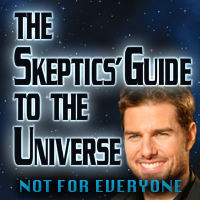I am a skeptic. I approach every aspect of reality with as much skepticism as possible. Because I will be using this word quite a bit moving forward, I want to explain it a little bit. In the United States this word seems to come with some extra baggage. To say someone is a skeptic here in the US is to say that the person is a "Naysayer" or a negative, closed-minded person. This connotation is not observed outside of the US.
In most other countries, the word skeptic (or its native equivalent) simply means logical thinker. A skeptic is someone that does not take everything at face value or believe something without evidence. In a sense, a skeptic is a scientist who's profession does not deal in one of the major science fields. A better term, at least for the US, is "logical thinker". Skeptics are the thinking class of society and are often said to be "fence sitters". Fence sitting is a figure of speech used to describe people who won't choose a side of an issue. It is the propensity of most people to feel like they HAVE to choose a frame of mind and stick with it forever.
A good example would be religion. Most religious individuals assume that my unwillingness to have "faith" in the existence of a god is the same thing as denying the existence of a god. Even though my personal opinion does lean toward the idea of a god as a nonsensical idea made up to answer the questions we cannot yet explain, it is still an unfounded assumption on that person's part. It is an argument from ignorance to confuse the word unexplained with unexplainable. Just because a scientist cannot prove something now does not mean it cannot be proven.
The idea of a skeptical society is a group of enlightened individuals that know the difference between being open-minded and having a hole in one's head. Not taking something at face value does not mean you are casting it aside, even though others would have you believe that is the case. Skeptics utilize the power of logical reasoning and consider every angle; whether it's a scientific theory or an argument with another person, having the ability to adjust your perspective will give you a greater understanding of the world and others in it.
That is what I am all about. There is a reason that a physics book costs more than the bible; we update our text books to account for new information while "true believers" cling hard to their outdated beliefs and logical fallacies. True learning only occurs when you can question the beliefs you hold most dear.
- Alex
Thursday, September 10, 2009
Subscribe to:
Posts (Atom)

